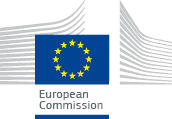Net-Zero Industry Act: Making the EU the home of clean technologies manufacturing and green jobs

The European Commission has proposed the Net-Zero Industry Act to scale up manufacturing of clean technologies in the EU and make sure the Union is well-equipped for the clean-energy transition. This initiative was announced by President von der Leyen as a part of the Green Deal Industrial Plan.
The Act will strengthen the resilience and competitiveness of net-zero technologies manufacturing in the EU, and make our energy system more secure and sustainable. It will create better conditions to set up net-zero projects in Europe and attract investments, with the aim that the Union’s overall strategic net-zero technologies manufacturing capacity approaches or reaches at least 40% of the Union’s deployment needs by 2030. This will accelerate the progress towards the EU’s 2030 climate and energy targets and the transition to climate neutrality, while boosting the competitiveness of EU industry, creating quality jobs, and supporting the EU’s efforts to become energy independent.
President of the European Commission, Ursula von der Leyen, said: “We need a regulatory environment that allows us to scale up the clean energy transition quickly. The Net-Zero Industry Act will do just that. It will create the best conditions for those sectors that are crucial for us to reach net-zero by 2050: technologies like wind turbines, heat pumps, solar panels, renewable hydrogen as well as CO2 storage. Demand is growing in Europe and globally, and we are acting now to make sure we can meet more of this demand with European supply.”
 Together with the proposal for a European Critical Raw Materials Act and the reform of the electricity market design, the Net-Zero Industry Act sets out a clear European framework to reduce the EU’s reliance on highly concentrated imports. By drawing on the lessons learnt from the Covid-19 pandemic and the energy crisis sparked by Russia’s invasion of Ukraine, it will help increase the resilience of Europe’s clean energy supply chains.
Together with the proposal for a European Critical Raw Materials Act and the reform of the electricity market design, the Net-Zero Industry Act sets out a clear European framework to reduce the EU’s reliance on highly concentrated imports. By drawing on the lessons learnt from the Covid-19 pandemic and the energy crisis sparked by Russia’s invasion of Ukraine, it will help increase the resilience of Europe’s clean energy supply chains.
The proposed legislation addresses technologies that will make a significant contribution to decarbonisation. These include: solar photovoltaic and solar thermal, onshore wind and offshore renewable energy, batteries and storage, heat pumps and geothermal energy, electrolysers and fuel cells, biogas/biomethane, carbon capture, utilisation and storage, and grid technologies, sustainable alternative fuels technologies, advanced technologies to produce energy from nuclear processes with minimal waste from the fuel cycle, small modular reactors, and related best-in-class fuels. The Strategic Net Zero technologies identified in the Annex to the Regulation will receive particular support and are subject to the 40% domestic production benchmark.
Key actions to drive net-zero technology manufacturing investments
The Net-Zero Industry Act is built on the following pillars:
- Setting enabling conditions: the Act will improve conditions for investment in net-zero technologies by enhancing information, reducing the administrative burden to set up projects and simplifying permit-granting processes. In addition, the Act proposes to give priority to Net-Zero Strategic Projects, that are deemed essential for reinforcing the resilience and competitiveness of the EU industry, including sites to safely store captured CO2 emissions. They will be able to benefit from shorter permitting timelines and streamlined procedures.
- Accelerating CO2 capture: the Act sets an EU objective to reach an annual 50Mt injection capacity in strategic CO2 storage sites in the EU by 2030, with proportional contributions from EU oil and gas producers. This will remove a major barrier to developing CO2 capture and storage as an economically viable climate solution, in particular for hard to abate energy-intensive sectors.
- Facilitating access to markets: to boost diversification of supply for net-zero technologies, the Act requires public authorities to consider sustainability and resilience criteria for net-zero technologies in public procurement or auctions.
- Enhancing skills: the Act introduces new measures to ensure there is a skilled workforce supporting the production of net-zero technologies in the EU, including setting up Net-Zero Industry Academies, with the support and oversight by the Net-Zero Europe Platform. These will contribute to quality jobs in these essential sectors.
- Fostering innovation: the Act makes it possible for Member States to set up regulatory sandboxes to test innovative net-zero technologies and stimulate innovation, under flexible regulatory conditions.
- A Net-Zero Europe Platform will assist the Commission and Member States to coordinate action and exchange information, including around Net-Zero Industrial Partnerships. The Commission and Member States will also work together to ensure availability of data to monitor progress towards the objectives of the Net-Zero Industry Act. The Net-Zero Europe Platform will support investment by identifying financial needs, bottlenecks and best practices for projects across the EU. It will also foster contacts across Europe’s net-zero sectors, making particular use of existing industrial alliances.
To further support the uptake of renewable hydrogen within the EU as well as imports from international partners, today the Commission is also presenting its ideas on the design and functions of the European Hydrogen Bank. This sends a clear signal that Europe is the place for hydrogen production.
As announced in the Green Deal Industrial Plan, the first pilot auctions on renewable hydrogen production will be launched under the Innovation Fund in Autumn 2023. Selected projects will be awarded a subsidy in the form of a fixed premium per kg of hydrogen produced for a maximum of 10 years of operation. This will increase the bankability of projects and bring overall capital costs down. The EU auction platform can also offer “auctions-as-a-service” for Member States, which will also facilitate the production of hydrogen in Europe. The Commission is further exploring how to design the international dimension of the European Hydrogen Bank to incentivise renewable hydrogen imports. Before the end of the year, all elements of the Hydrogen Bank should be operational.
Next Steps
The proposed Regulation now needs to be discussed and agreed by the European Parliament and the Council of the European Union before its adoption and entry into force.



























